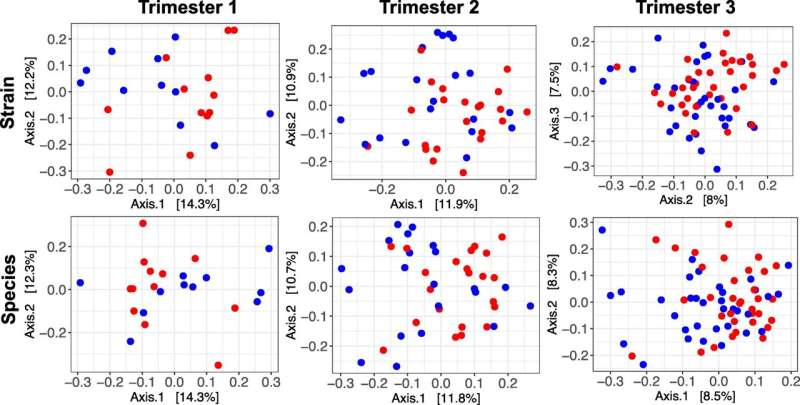Home » Health News »
Dietary changes could help reduce pregnancy complications in women with type 1 diabetes

A recent study by WEHI and ENDIA has found type 1 diabetes is associated with changes in the gut microbiome during pregnancy and could contribute to complications in both the mother and baby.
The research found a link between type 1 diabetes and changes in the gut microbiome that are associated with intestinal inflammation, which could account for the increase in pregnancy complications in women with the condition.
The study revealed pregnant women with type 1 diabetes had a decrease in “good” gut bacteria that normally protect against inflammation and an increase in ‘bad’ gut bacteria that promote intestinal inflammation and damage to the intestinal lining. These changes could contribute to the increased risk of pregnancy complications seen in women with type 1 diabetes and could potentially be modified by dietary changes.
Gut health linked to pregnancy complications
The research was part of the ENDIA (Environmental Determinants of Islet Autoimmunity) study, investigating genetic and environmental factors that may contribute to the development of islet autoimmunity and type 1 diabetes in children. The observational study has recruited 1500 babies from pregnancy who have an immediate relative with type 1 diabetes and is following them through childhood.
WEHI clinician-scientist Professor Len Harrison, who led the research, said women with type 1 diabetes have a higher frequency of complications in pregnancy.
“We decided to study the gut microbiome because there was evidence of systemic and intra-uterine inflammation in pregnancy for women with type 1 diabetes that could conceivably be related,” he said.
Together with colleagues in bioinformatics at WEHI, as well as ENDIA partners, the study team undertook whole genome sequence analysis of samples from pregnant women. The samples were taken from groups of women at different stages of pregnancy.
“In women with type 1 diabetes, we observed changes in their gut microbiome, including a decrease in ‘good’ gut bacteria and an increase in ‘bad’ gut bacteria,” he said. “The ‘good’ bacteria make substances that prevent inflammation and the ‘bad’ bacteria release substances that activate the immune system to trigger inflammation.”
“We are now investigating if these changes are linked to the higher rate of complications during pregnancy in women with type 1 diabetes.”
Professor Harrison said changes in the gut microbiome of the mother could have implications for the pregnancy and for the health of the baby.
“It is also possible that the changes we observed in the mothers with type 1 diabetes might have a lasting influence on the baby which continues after birth,” he said.
Changing diet
Professor Harrison said the next stage of the project was to identify markers that would determine which women with type 1 diabetes might benefit from safe interventions during pregnancy, including dietary changes.
“We believe that if these women made some safe dietary modifications it could help to restore the health of their microbiome and lower their risk of complications during pregnancy. This is what we are investigating now,” he said.
Source: Read Full Article



